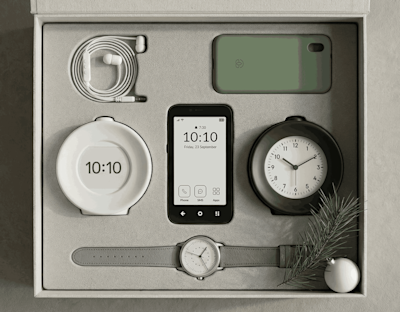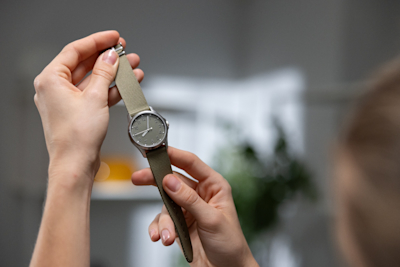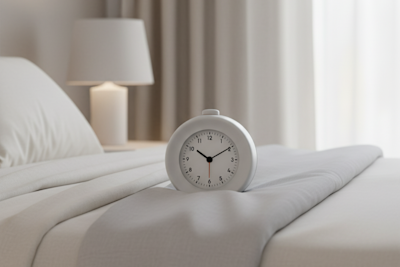
6 Ways to Bring Back the Simplicity into Your Life
Back to Basics
In this world, we are constantly inundated with information and it is so easy to become overwhelmed. This often results in a negative mindset. However, simplicity allows you to clear up your mind and ultimately focus on what's important.
The vast majority of time, we spend our time doing things that aren’t always the most important. We check our phones, we scroll through social media and we try to do too many things at once. These are all things that can be put aside for a moment to help bring about a sense of simplicity.
Here are some tips on how you can bring back simplicity into your life:
Take Time to Slow Down
Take time to slow down and enjoy each moment. Rest & relaxation are important for your health and overall well-being. Additionally, taking time to slow down will also help you be more productive.
Here are some ideas:
Read a book which you've been meaning to get around to reading.
Journal: Write down your thoughts and feelings. This can be a great way to get clarity on things that are going on in your life.
Take time to make a meal at home instead of ordering out. Practice mindful eating.
Tune Into Nature.
Spending time in nature can be a joyful and powerful experience. For example, in the presence of a waterfall or rushing river, you can clear your mind of daily chatter and connect with your deepest truth. Nature is nonjudgmental, so there's no need to feel self-conscious when you're in its presence. It's also therapeutic—many people report feeling calmer after spending time outdoors.
If you live in an urban area where getting out into nature is challenging, try taking walks around your neighborhood or park on the weekend instead of driving through them on your way somewhere else. You can also consider volunteering at an environmental organization that works on behalf of wildlife preservation—you'll get plenty of time outside while helping others have access to it as well!
Limit Screen Time & Embrace the Digital Detox
How often do you check your phone? How many times do you check your email? How many times do you visit various social media sites? Are there ways that these things could be brought back into balance in order to free up more time for other activities?
Since we are all so attached to our phones and other tech devices, it can be difficult to pull yourself away from them. However, it's important to make time for yourself every day—without a screen in front of your face.
Here are some tips on how to disconnect from technology and embrace the digital detox:
Take a break from your phone. Unplugging doesn't have to mean breaking up with technology completely; it's more about taking a break from always having access. Try setting aside 30 minutes each day when you don't check email or use social media apps, like Instagram or Facebook Messenger; this will help keep you focused on present-moment experiences instead of worrying about what happened earlier or later that day (or night). If you want something longer term, try unplugging for a full day every week as well! It helps if you have an intentionally offline phone like Mudita Pure.
You should definitely try unplugging from technology when you're with friends and family. You don't have to be on your phone all the time; this is especially true if you're meeting up with someone for a face-to-face conversation.
Embrace silence by not listening to music while walking around town or eating dinner at home. Try to focus on what's happening in the moment when you're doing something that doesn't require a screen. This will help you appreciate what's around you and make it easier to disconnect from technology later on!
Declutter your home.
Decluttering your home is an important step to getting rid of the excess. You don't have to do it all at once, but start off by taking a walk through each room in your house and asking yourself if you use it or love it? Do you have any items that have been there for years that no longer serve any purpose? Don't feel discouraged if you come up with quite a few things like this!
Letting go of things which no longer serve us can be difficult at first. It's important to remember that when we hold on, we are doing our best to protect ourselves from loss but we often end up limiting our options in life instead. A cluttered home can make us feel overwhelmed and stressed out because our mind has been overtaken by too much stuff—it's hard to focus on what's truly important when there's so much other stuff vying for our attention. Clutter also takes away from how spacious and peaceful our surroundings feel. However, decluttering doesn't mean throwing everything away! In fact, having fewer possessions actually allows us more freedom because there isn't anything holding us back anymore.
Try meditation & breathing exercises
If you're looking for a way to bring back some calmness into your life, try taking some time out of each day for meditation or breathing exercises.
Meditation can help to quiet your mind and bring you back to the present moment, while breathing exercises are a great way to destress and ease your anxiety. This will help you feel more relaxed and energized throughout the day.
Meditation and mindful breathing are great ways to get in touch with yourself and clear your head, which can help you focus on what's important.
Embrace JOMO
JOMO is the joy of missing out, and it's something we can all learn to embrace. The opposite of FOMO—the fear of missing out—JOMO is the happiness you feel when you don't take part in something that everyone else is doing. It's being content with being alone rather than always having to be around others. JOMO is a state of mind that can help you make better decisions about your life by allowing you to focus on what matters most to you, rather than simply following trends or keeping up with friends.
By embracing JOMO, we allow ourselves space for self-reflection, introspection and growth so that we can continue moving forward without feeling weighed down by external pressures like social media likes or fashion trends (or whatever else may be influencing us). When we do decide to engage with other people though, we'll be able to do so from a position of strength rather than weakness because our sense of self-worth won't depend on validation from others anymore!
Bottom Line
In the end, it’s about drawing a line between what’s important and what isn’t. Making health and well-being a priority is the number one rule. You need to be able to take care of yourself before you can take care of anyone else. It sounds simple enough, however most people struggle with this aspect of life because they feel so much pressure from their environment and society at large not to do just that! If there is something in your life that feels like an obligation rather than a pleasure or joy then maybe it's time for some changes. Perhaps it’s time to simplify your life and go back to basics.
Is there anything you’d like to add, have we missed anything? We’d love to hear about your experiences with simplifying your life and how it has impacted your health & well-being.
If you’d like to read more about topics connected to this subject, please check out some of our other articles:
To learn more about Mudita, take a look at our website and our other posts.
Related stories

Introducing 8 Days of Mindful Gifting
Mudita presents 8 Days of Mindful Gifting. One new promotion each day, Dec 5–12 at 12:00 CET. Visit daily for meaningful, intentional gift ideas.

The Story of Mudita Radiant & Designing Time Differently
Read about the story behind Mudita Radiant, a Swiss automatic field watch designed with clarity, durability, and mindful craftsmanship. Wear time differently.

Why Analog Alarm Clocks Are Better for Improved Sleep
Learn why analog alarm clocks improve sleep quality. Remove blue light and phone distractions from your bedroom for deeper rest and calmer, healthier mornings.
Jeśli chcesz otrzymywać najlepsze historie z naszego bloga, bądź na bieżąco z naszymi postępami i otrzymuj powiadomienia o premierach naszych produktów i specjalnych zniżkach.